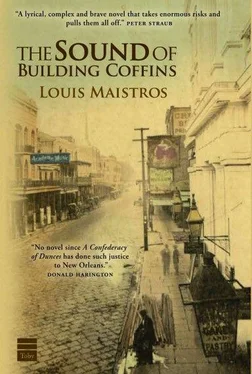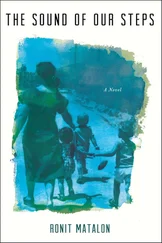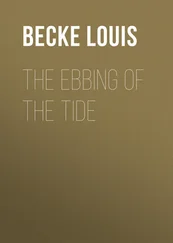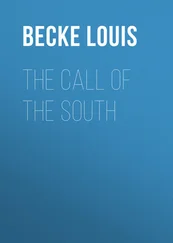The woman responds, “I will not let thee kiss her.” She tips the girl’s chair forward, sending her downward into flame. The girl’s eyes are wide with terror as she plunges headlong. Her screams make no physical sound but reverberate through Typhus’ chest. A part of him recognizes the girl as she falls-it is his sister, Cholera. But the recognition makes no sense; Cholera died at only two months old-and years before Typhus was born. This was not Cholera.
This was Cholera.
He now recognizes the rest of the children, but the ages are all wrong. They cannot all be nine years old.
“Hast thou come to send him to sleep?” The woman points to the boy at her left.
“Wait!” Typhus bellows through his father’s throat. He opens the bible, searches its pages for answers. This is difficult with only one hand, and the paper is like ice. It takes a moment before Typhus realizes the pages are all blank.
“Uncle Typhus, please! I can’t find my buttons! Someone took my buttons! Help me!” West is squirming beneath the old woman’s hand.
“ Hast thou come to send him to sleep?” she repeats patiently.
Noonday Morningstar’s heavy tone rumbles through Typhus’ narrow throat, “No! No! I haven’t come to send him to sleep!”
The old woman’s face contorts into a half-smile as she replies, “I will not let thee do him harm.”
She tips West forward and into the pit, leaving one boy and one girl. Typhus realizes the girl is a child-sized version of Diphtheria-and that she has just witnessed the death of her own son. Her screams issue with such force that her neck bulges then splits. Blood spatters her perfect yellow dress.
The old woman points to the bleeding girl now. “Hast thou come to take her away?” Suddenly, Typhus recognizes the old woman.
“I know you!” he hears his father shout.
She repeats, “Hast thou come to take her away?”
The woman is a hoodoo mambo. She visits Doctor Jack two or three times a year to trade herbs. She has always seemed so timid and kind on her visits. Her name is Malvina Latour.
“Why are you doing this?” The voice of Noonday Morningstar trembles.
“I will not let thee carry her away.” The child-version of Diphtheria tips forward and down, but her eyes are no longer afraid and there is relief in them as she falls. She will now, at least, be with her little West.
“Typhus,” says the remaining child, a boy. His voice is calm, reassuring, unafraid. “Don’t feel bad. You done no wrong here. You can’t help that you lost your faith. People don’t choose to lose faith. Faith leaves them, not the other way ’round.” The child version of Dropsy Morningstar droops his head towards the pit, staring into smoke and flame with a grin. “I ain’t never seen a thing so lovely. Ain’t it pretty, Typhus? Pink threads, orange water, pretty music…”
journeys of threads through a rug
Typhus’ eyes fill with tears as the woman deadpans through chicken-wire, “Has thou come to crucify him?”
“ No, no, no!”
“But you have,” says Dropsy with a smile. “It’s okay, now, Typhus. Let me go.”
Malvina Latour is screaming, “ Hast thou come to crucify him?”
Typhus searches the weird peace in Dropsy’s eyes for answers. He knows answers are there, answers to all the questions he could ever ask-but he can’t find them.
“Forsake me, Typhus. You have no choice,” says Dropsy. “Forsake me…please?”
Typhus Morningstar’ heart is breaking: “ Yes , yes, I have come to crucify him!” The sound of his own sobs chill his blood; he has never heard his father sob before.
The face of Malvina Latour is smoothing. Rage has vacated her eyes. Without another word, she steps forward and into the pit, her dress fluttering in flame as she falls. Dropsy remains seated and bound, his grin ever-widening.
“That’s right, that’s right,” Dropsy says. “Ain’t yer fault, Typhus.”
“I’m dreaming,” says Typhus, his voice now miraculously his own.
“Yes, you’re dreaming. But the dream means something.”
“What does it mean?”
Dropsy’s grin evaporates. “It means you are out of hope.”
Unable to accept this simple truth, Typhus opens the bible once more, searching. This time the pages are not blank, but are filled with gibberish. The same group of words are repeated over and over:
Zedn Nasicb Uqmao Tuoyn Raioe Htvae Emayi Uodonri Ine Encpd Aq Plimu O Ano Oarce Unthar Dead Iu On Ere Hurt Ecibuotor
Nonsense words. Unpronounceable. Stupid. Useless.
He slams the book shut, looks down to see two small feet. No longer in the body of his father, he is himself again entirely. A man in the shape of a boy. Old of eye, older of body, oldest of heart.
Dropsy is teetering back and forth in the chair, tempting the pit to take him. Typhus looks into the eyes of his brother, wanting to say something, an important question at the tip of his tongue. He is only able to say:
“Dropsy…”
Dropsy smiles one last time before rocking forward and over; “Goodbye,” he says.
Chapter thirty-seven. Beware the Shoe Dove
Doctor Jack regarded superstition as a luxury reserved for the weak of mind. He was a man of science first, so when confronting fresh mysteries he always considered the scientific possibilities first. However, when uncanny or illogical patterns presented themselves, he took care to make note and attach credence to such-even if the scientific basis behind these occurrences was not immediately evident. One such pattern he’d noted in his lifetime was this: Nights absent of sleep usually precede catastrophe. This was not a scientific theory, was not even a realistic hypothesis, but the truth of it had become apparent to him over the years. So when eyes stayed open and mind stayed alert-as they did on this night-it felt a warning.
Jack had been taught by experience and the passage of time that to lie alone in the dark can make you a prisoner of your own thoughts. Such quiet solitude can put a person in a mind to examine what he’s done in his life, what he’s doing, and where his life may be pointed. What a person might’ve done, should’ve done, could’ve done, couldn’t do and wouldn’t do.
But the worst were always the should’ves .
Annoyed with the workings of his own mind, Jack attempted to distract himself with things imagined:
a brown leather shoe with white-feathered wings, flapping above his head in the dark; soaring and dipping, hovering and zagging-whispering with grinning laces, “Beware! Beware!” One flying shoe divides and turns into two, two to four and four to eight. A dozen flying brown shoes gracefully weave in and around each other, never touching, whispering warnings:
Beware .
Doctor Jack grinned then laughed into black, cool air. Beware the shoe-doves , he thought. Shoe-doves.
Should’ves.
Funny how the mind works.
He lightened at the irony and so relaxed, the fantastic dance of shoe doves evaporating as quickly as they’d materialized. Sleep was now a possibility, but before his mind could escape into dreams, one last tenacious shoe-dove whispered then clawed its way back into his mind. This shoe-dove’s name was Noonday Morningstar.
Morningstar’s face had often visited Jack in dreams, sometimes in waking hours. The preacher’s face was a reminder of his own inability (or, perhaps unwillingness) to act in moments requiring courage-just as he’d failed to act on the night of Morningstar’s death. The prison guard Beauregard had acted that night. Young Buddy Bolden had acted. Even little Typhus had acted. But he-a medicine man, doctor, and spiritual leader-had merely looked on. Helpless and afraid, he had done nothing.
Читать дальше












